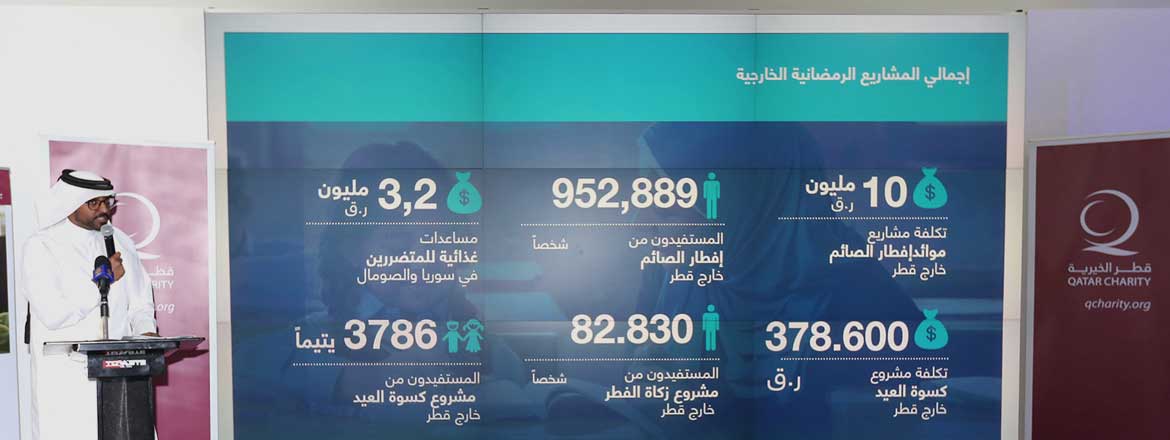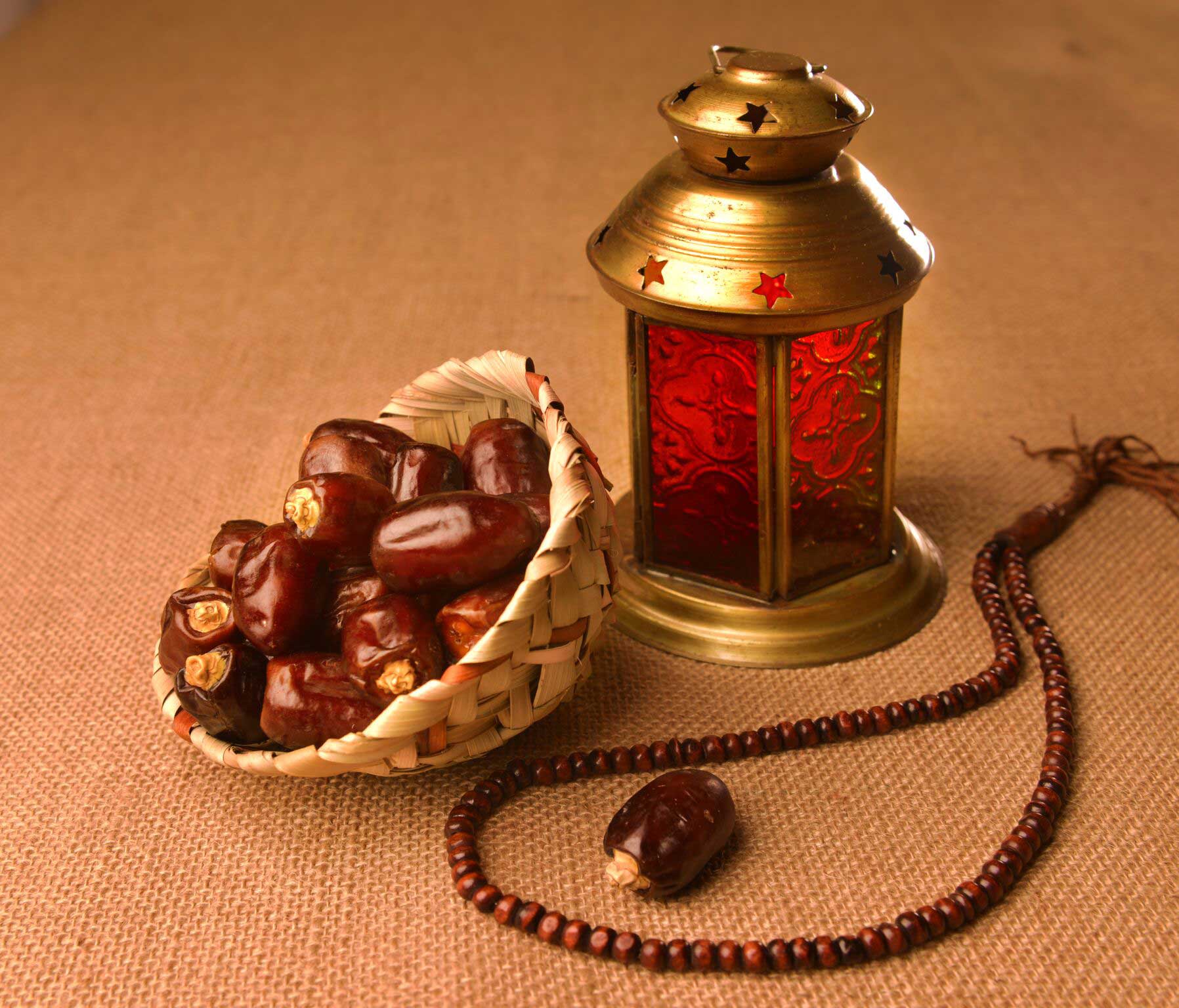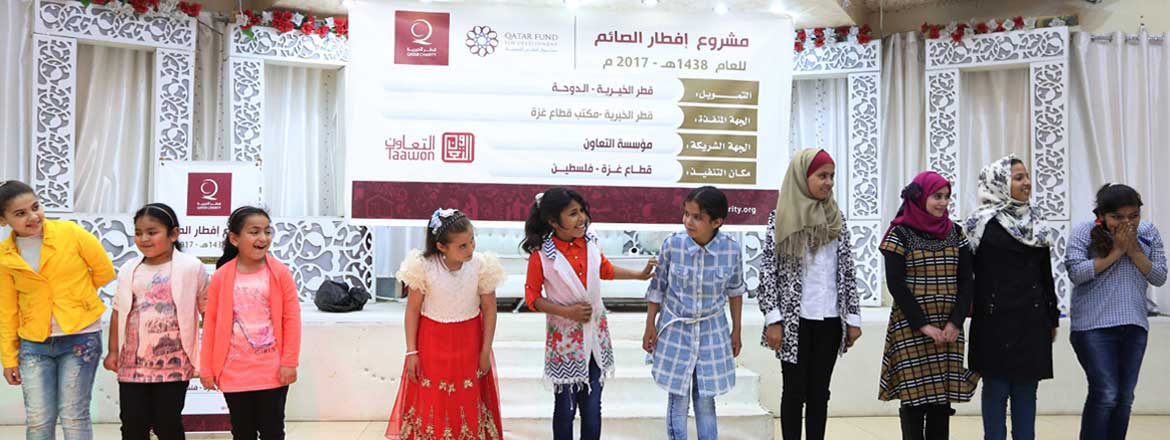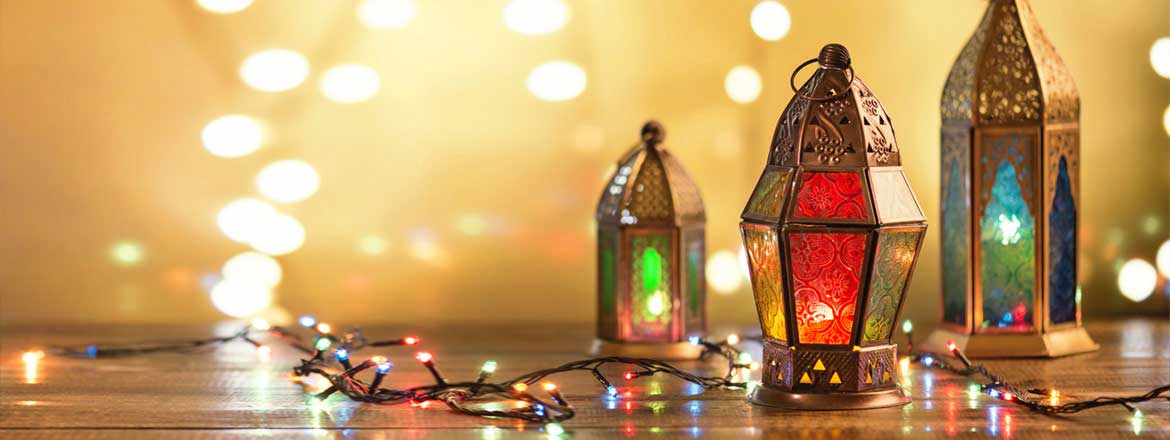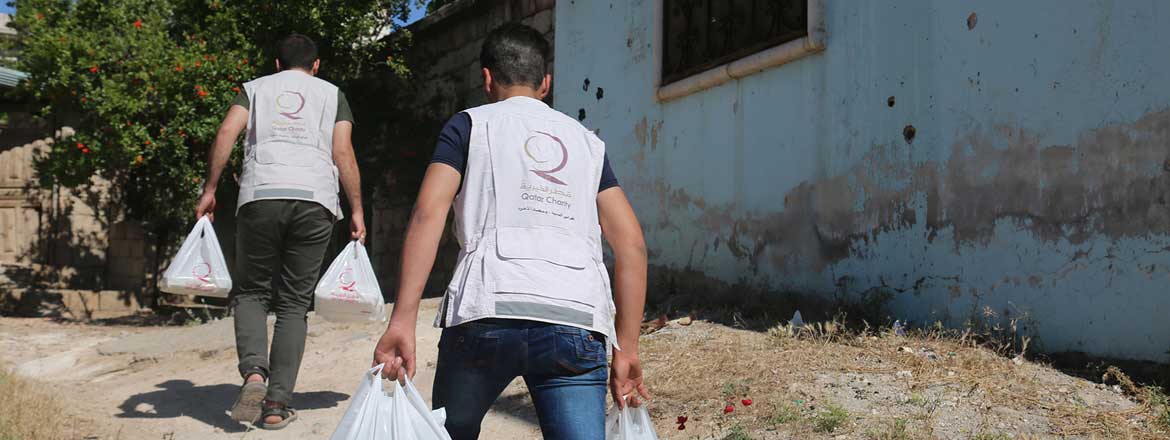Ramadan Kareem: Tripoli, "Mother of The Poor."
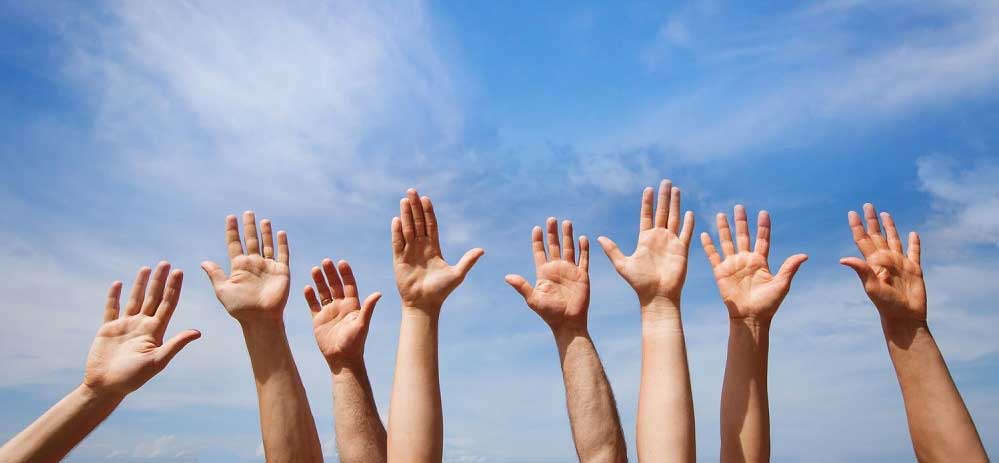
2017-05-30T12:49:53+01:00

By: Judy Al Asmar
But it is also Tripoli, "Mother of The Poor" where one can enjoy the best of what the city offers, especially in food and clothing, for a small price. Unfortunately, nowadays, it is "the Mother of Poverty " after recent studies revealed it to be the poorest city on the Mediterranean.
In this city, where 60% of the population live below the poverty line, the dominant Islamic identity shines in its most definite form during the holy month of Ramadan, when the benevolent hands gather for initiatives to feed the underprivileged.
Tripoli has well-established charity organizations that double their food aid in Ramadan. Thus, this city is witnessing the emergence of initiatives by the youth to provide food through purely voluntary efforts and individual donations.
To name but a few, the “Ambassadors of Good” initiative has, for eight years, been targeting orphans and disadvantaged people throughout the month by delivering hot and delicious food to their homes on a daily basis. This group of young men and women from various Lebanese regions is active in Tripoli and northern Lebanon. Their efforts are coordinated by Professor Nada Hamdash: "Our primary objective is not to make those whom we help feel embarrassed or humiliated, but to treat them as we would like to be treated. We are also concerned with doing an excellent job and providing quality food. " The activities of this group are diversified and include different age groups. Hence the "Iftar Ramadan" project has witnessed a significant development. In the first year, Iftar meals were distributed to 300 people. In the second year, there were 2000 beneficiaries. In the eighth year, this number reached 28,000 beneficiaries throughout Lebanon (Beirut, Tripoli, the north, Sidon and Wadi Al-Zayneh). Donations are usually raised through an annual charity Iftar, zakat funds, and individual contributions mostly collected from people of the middle class. The non-working university youth form the core of “Ambassadors of Good.”
The "We Love Tripoli" youth association is another example. This group, for the past 7 years, have been organizing Iftar meals for orphans in the most deprived areas. They began with one Iftar for orphans in the year, until it was able, during the last three years, to manage and organize three Iftars for orphaned children each year. The founder of "We Love Tripoli” Taha Naji's explains the concept of their work: “We take a group of orphan children to a restaurant, and every young volunteer is responsible for one child during Iftar. The activity concludes with leisure facilitated by the group". Through the association's relations with other credible local organizations and beneficiaries in the areas of Tebbaneh, Jabal Mohsen, Al-Tanak district in the port and others, children are referred to "We Love Tripoli" to participate in Iftar. As operators are aware that volunteering does not necessarily mean that a volunteer must donate for Iftar, the option to raise donations from outside the association is open for all.
Social solidarity in Ramadan takes an integrated approach in the works of “Basma and Yasma” youth initiative. This initiative was launched by the efforts of two young men and a woman from the most marginalized areas of Jabal Mohsen and Bab El Tebbana in Tripoli, an area known for its sectarian rivalries. The group met a year ago to provide food supplies collected from small shops in the two regions as means to the revival of the local economy and sell to individuals and institutions that want to provide food support for families, especially during the month of Ramadan. Ms. Marwa Baker, a participant in the initiative, explained: “We have integrated unemployed youth and school dropouts into this effort to contribute to the preparation and transfer of supplies to needy families, and to take advantage of the financial benefits we derive from “Basma and Yasmeh” at competitive prices.” One of the founders of the initiative, Mr. Hassan Saleh, points out that their food contributions are provided to five local and international associations
The Tripoli historian, Professor Omar Tadmari, affirms that this social fabric in the Holy Month has not come as a result of a recent phenomenon. He claims that it is based on similar experiences that took place in the second half of the twentieth century, as in the school of Qadiriyah in the copper market before it became a mosque. This area, for 30 years, was occupied by a free restaurant based on contributions of the middle-class people who used to buy raw materials, prepare food, and deliver it to the deprived during Ramadan and throughout the year.
Note: The article expresses the opinion of the author solely and does not necessarily reflect the viewpoint of Qatar Charity.
Related News
Qatar Charity’s Ramadan Campai
Executive Director of Local Development assured, “More than 2 million people will benefit from our ramadan projects in 1438H, at a cost of about QR 31 million.”
Qatar Charity (QC) has launched its campaign for this year’s Ramadan season entitled “Give and Shine Through”. The estimated total cost for projects to be implemented inside and outside Qatar, during the Holy Month of Ramadan 1438H, is QR 31 million, and the number of beneficiaries is expected to reach over 2 million people.
QC held a press conference at Al Jazeera Cafe in the cultural district of Katara to announce launching the campaign. It was run by Mr. Ahmed Al Ali, Director of the Media Department at QC, who started by giving thanks to the social networks and the media for supporting QC’s projects and campaigns. Also, the Executive Director of Local Development at QC and the Chairman of the Ramadan Projects Committee, Ali Atiq al-Abdullah, and a number of directors of various departments in QC have participated in the press conference.
The campaign includes three main projects: Iftar meals, Eid clothing and Zakat al-Fitr, as well as a range of public and religious projects in Qatar, and media programs broadcast through the media and social networks.
The estimated cost of projects outside Qatar is about QR 15 million and is expected to benefit more than 1.1 million people. similarly, the estimated budget for Ramadan projects in Qatar is about QR 16 million, benefiting more than 900,000 people.
Congratulation
Ali Atiq al-Abdullah, on behalf of QC, congratulated the people of Qatar and the Arab and Islamic nations, praying for having a good and rewarding Ramadan and reminding them not to forget their brethren with need. He also stimulated them to help people in this month with their generosity and giving, based on the words of the Almighty, “And if any one saved a life, it would be as if he saved the life of the whole people.”
Giving a hand
He urged benefactors and donors to lend their brothers a helping hand by donating to Qatar relief and development projects inside and outside Qatar, such as relief to the Syrian people, orphans and Needy Families Sponsorship, educational and health projects and income-generating projects so as to support the beneficiaries.
Internal projects
QC's projects in Qatar include a wide variety of Ramadan Iftar projects, and watering, and they extend to popular and cultural programs and challenging projects that allow for competition among the youth volunteer teams in cooperation and partnership with a number of related parties. Some of which are being implemented for the first time, while others have been developed. The most important of these projects are:
Fast Breaking Dinners
The number of fasting meals held or supported by QC is 23 group tables. They are distributed throughout the country for the sake of single workers, wayfarers, and low-income individuals. QC has fully taken the responsibility for completely offering 20 tables, and helping to provide 3 other tables. It is expected that 170,670 people will benefit from these dining tables, at a cost of about QR 5.5 million.
The targeted areas of iftar include Al Khor, Smeisma, Khareteyat, Gharafa, Rayan, Shahaneya, Wakrah, Bin Mahmoud, Freij Abdul Azeez, Najma, Mansoura, Bit Omran, Matar, Seleya, Jmeileya, Um Salal Muhammed, Al Ruwais, and Al Kaaban.
There are some projects that go under the Iftar project. The most important of which are:
From Home to Home
A project that enables Qatari families to prepare Iftar meals for families with limited income to reach their homes. They will be about 9000 meals throughout the holy month.
Farms Workers Iftar
The farms workers gatherings are targeted in six regions of the country and breakfast meals will be served for 600 workers per day, bringing the total number of beneficiaries to 18,000.
Doha Industrial Area’s workers Iftar
The project focuses on the workers' gatherings in the industrial area, through dedicated cars to daily distribute breakfast meals. The project is expected to benefit 12,000 workers during Ramadan.
Ramadan Food Baskets
The project provides supply requirements of Ramadan for limited-income families through coupons distributed by QC or the referees. Supplies are received from the shopping malls at the beginning of Ramadan, targeting 1500 families.
Mobile Iftar
Targeting 15,000 fasting people, it provides light Iftar meals prepared by Qatari families who are in easy circumstances. The meals are distributed to motorists who hear sunset call to prayer before arriving at their homes.
SoQya, Providing Water to Prayers
The project daily distributes water to the prayers during Taraweeh and voluntary night prayer in 43 mosques. It targets more than 8064 worshipers, bringing the number of targeted throughout the holy month to 242.000 people.
Public and Cultural projects
Youth entrepreneurship competition "Entrepreneurship"
The idea is to encourage youth to compete in order to organize entrepreneurship activities to serve the community, and support Ramadan projects and external humanitarian projects, in cooperation with one of university student clubs and community development centers in QC, and then choose the best initiatives and honor who launch them.
Al- Baraha Programme for Communities
A public program that includes Iftar meals and a number of entertainment and awareness events for fostering values. It revolves around the children of communities living in Qatar and is expected to benefit 10,000 people in more than one community.
A Dialogue with Influential Figures in Ramadan
A weekly meeting in Katara throughout Ramadan, hosting a personality of intellectuals and writers, to discuss a cause of concern to the community with them, and seek to provide them solutions.
Believers
An activity held helping the community members to getused to adhere to the Prophetic Sunnah and good behaviors such as: visit the sick people, attend the funerals and feed the poor.
Cohabitation
A targeted activity for non-Muslim foreign people to familiarize them with the customs and traditions of Qatari society by organizing a day of cooperation with Muslims and engaging them in voluntary activities such as Iftar meals and visiting the gatherings.
Orphans' Gifts (Eideyas)
A celebration in which Eideya (an amount of money which is given in Eid) are distributed to orphans before Eid al-Fitr. In this regard, QC urges the public to donate money in order to put a smile on the faces of this group.
Projects outside Qatar
QC carries out its Ramadan projects in 37 countries around the world. These projects are divided into three main projects: Ramadan, Eid, and Zakat Al Fitr, with a value of about QR 15 million. More than 1.1 million people are expected to benefit from it, with a focus on countries which suffer from crises and disasters.
Iftar
The Iftar project is the largest of Ramadan projects, with a value of QR 10,031,451. It is expected that 952,889 people will benefit from the project, of which around QR 1.5 million will be allocated to the displaced and Syrian refugees. Besides, the allocations of Yemen, Somalia, Palestine, and Iraq are increased in these projects.
The target countries include: Bangladesh, Benin, Chad, Comoros, Côte d'Ivoire, Djibouti, Egypt, Eritrea, Ethiopia, Jordan, Kenya, Pakistan, Senegal, Sudan, Sudan, Burkina Faso, Mali, Nigeria, Iraq, Togo, United Kingdom, Lebanon, Morocco, Philippines, Bosnia, Kyrgyzstan, Tunisia, Kosovo, Albania and Turkey.
In addition, food has been allocated to affected people in Syria and Somalia (flour, bread, food baskets) worth more than QR 3.2 million, and is expected to benefit about 100,000 people.
Eid clothing
Benefiting 3786 orphans in 21 countries, Eid clothing project aims at gladdening the orphans sponsored by QC through offering them clothes before Eid al-Fitr, at an estimated cost of QR 378,600.
Zakat al-Fitr
QC is implementing this project, targeting 82,830 people in 33 countries across the world at an estimated cost of QR 1,242,457 in order to spread the joy among Muslims on the day of Eid al-Fitr, and to avail the needy.
Ramadan and Islam
By: Afaf Ali
Ramadan is the ninth month of the Islamic lunar calendar. Every day during this month, Muslims around the world spend the daylight hours in a complete fast. The word "Ramadan" comes from the Arabic root word for "parched thirst" and "sun-baked ground." It is expressive of the hunger and thirst felt by those who spend the month in fasting. Fasting is another unique moral and spiritual characteristic of Islam.
During the Blessed month of Ramadan, Muslims all over the world abstain from all food, drink, and other physical needs during the daylight hours. Ramadan is much more than just not eating and drinking; it is a time to purify the soul, refocus attention on God, and practice self-discipline and sacrifice. Through increased devotion, Muslims feel closer to their Creator and recognize that everything we have in this life is a blessing from Him.
Fasting is considered one of the five Pillars of Islam; five activities that shape a Muslim's life. Prayer occurs on a daily basis; pilgrimage is done once in a lifetime; charity and professing one's faith are both ongoing. It is an annual observance; every year, Muslims take an entire month out of their lives to observe this strict fast and rededicate themselves to worship and faith.
Muslims are called upon to use this month to re-evaluate their lives in light of Islamic guidance. We are to make peace with those who have wronged us, strengthen ties with family and friends, do away with bad habits essentially to clean up our lives, our thoughts, and our feelings. Through self-control, a Muslim practices good manners, good speech, and good habits.
Muslims feel the physical effects of the fast as a reminder of those who suffer throughout the year, those who are poor, homeless, refugees, and who cannot meet their basic needs. It reminds Muslims not to be wasteful and to feel empathy for those who face hunger on a daily basis. We should feel gratitude for the bounties of Allah: clean water, sufficient healthy food, the comfort of a home, health of our family members. There are so many in the world who must survive without these basic needs, and Ramadan is a time for us to give thanks and reaffirm our commitment to helping those in need.
During Ramadan, every part of our bodies must be restrained. The tongue must be restrained from backbiting and gossip. The eyes must restrain themselves from looking at unlawful things. The hand must give in charity, and not touch or take anything that does not belong to it. The ears must refrain from listening to idle talk or obscene words. The feet must refrain from going to sinful places. In such a way, every part of the body observes the fast.
Therefore, fasting is not merely physical but is rather the total commitment of the person's body and soul to the spirit of the fast. Ramadan is a time to practice self-restraint; a time to cleanse the body and soul from impurities and re-focus one's self on the worship of God and charity to mankind.
Note: The article expresses the opinion of the author solely and does not necessarily reflect the viewpoint of Qatar Charity.
Qatar Charity distributes fast
Starting in the beginning of Ramadan, Qatar Charity (QC) continues to implement ramadan fast breaking and food basket projects. The beneficiaries of the two projects during the holy month are 98,700 people, including orphans, disabled people, poor families and other needy groups.
In this regard, QC’s Office has distributed 8030, out of 12,258, family breakfast meals till the sixth of Ramadan as part of its fast breaking project (one family meal is enough for four people).
Orphans Iftar
More than 56,000 people, including orphans, poor families and the handicapped, are expected to benefit from Iftar meals by distributing these meals to the marginalized areas in the Gaza Strip, as well as group Iftar for orphans in partnership with Wajd program launched by Welfare Association and funded by Qatar Development Fund.
The project was implemented with the participation of 37 local institutions distributed throughout the five governorates of the Gaza Strip. Besides, it included the delivery of these meals to about 5273 families sponsored by QC’s Office in Gaza, in addition to 1800 families who are not sponsored.
During a group fast breaking dinner, including recreational activities and the distribution of gifts, the sponsored children’s mothers expressed their delight for the great activities that strengthen the social ties between the families of orphans.
Fresh meals
The poor families who are not sponsored expressed their deep gratitude for the efforts exerted by QC in supporting the Palestinian people and providing fresh meals to poor families as well as to other needy groups.
The beneficiaries confirmed the need to continue these efforts to improve the Palestinians’ living circumstances as they have been under siege for eleven consecutive years.
Moreover, QC’s Office in the Gaza Strip continues to implement the food basket project in support of Gaza during the Holy Month of Ramadan for the year 2017-1438H. It is expected to benefit 6,100 families, equivalent to 42,700 people from all over the Gaza Strip.
The project, which is valued at 880,000 QR, includes providing Food Baskets for Poor Families in various areas of Gaza according to the appropriate distribution of the needs of the sector and population distribution.
The project revolves around the provision of food baskets according to specific criteria of the basic ration items and different cleaning materials according to the needs of the house, thus enabling the beneficiary to take advantage of the things necessary to achieve the desired benefit and enhance human dignity.
The poor suffering alleviating
Mohammed Abu Haloub, Office Director of Qatar Charity in Gaza, assured that the fast breaking project and food basket project are of the seasonal projects that QC is keen to implement on an annual basis in its mission to help poor families and meet their needs.
He pointed out that the goals of these two projects are to economically and socially support families, and to alleviate the pressures and burdens accumulated on the poor, as well as improving the health and food situation, especially with regard to the provision of household needs of cleaning materials and others.
Furthermore, he stressed that QC’s projects are ongoing based on taking care of the poor and needy families, pointing at the same time to development projects that serve the Palestinian public interest, such as educational, construction, social and other projects.
QC, in its seasonal projects, pays attention to the countries that suffer from crises and exceptional situations and Palestine is one of the countries that suffer from the siege and the high rates of poverty and unemployment.
The Story of a Lantern
By: Rochdi Boumedine
Ramadan is a month like no other. It is a symbol of forgiveness, devotion and celebration. Alongside with its spiritual aspect and long fasting days, Ramadan Kareem lives in our collective memory of as a fascinating social and cultural event. It stretches back in history, and conjures vivid images of all those who celebrated it before us, weighed with their traditions and festivities. Ramadan exudes an atmosphere of its own, and whenever there is Ramadan, there is something differently exciting happening somewhere, call it tradition, or maybe culture, or just pure magic. Ramadan is a cultural tapestry that encompasses all, yet it is celebrated differently in every corner of the world.
One of the most prominent icons of Ramadan’s celebrations is the Fanoos, the Arabic for Lantern that has always accompanied Ramadan, embodied its festive spirit and celebrated its arrival. The Lantern tradition was born in Cairo Egypt, and carried on through generations to come.
There are many tales about how the lantern tradition started, however they all lead to Cairo during the Fatimid Islamic Caliphate reign nearly a thousand years ago. One story goes on when the Caliph Al-Muizz Lideenillah was on his way for the sighting of Ramadan crescent, he was accompanied with Cairo’s children holding lanterns and singing Ramadan songs.
It is fascinating that the Ramadan lantern has survived the captivating power of time and change. Lantern has remained a symbol of the holy month of Ramadan, and was charmingly incorporated with a rich oral literature in Egypt and some other neighboring countries in the Middle East and North Africa. Songs like Wahawi ya Wahawi (metaphorically meaning the light of fire), and Bint El Sultan (The daughter of the Sultan) are still sung by nowadays children and echoing in the streets of Cairo upon the coming of Ramadan. The Ramadan lantern is a story of a happy child, a colorful lantern, and an ancient song.
Ramadan Lanterns are very popular in Egypt; thus it is quite unlikely where an Egyptian household does not have a colored lantern. They come in all different colors, sizes, and shapes. Some of them can be as high as two to three meters, while there are those with key-ring size for the kids to play with. Fawanees (Plural of Fanoos) also can show a beautiful display of Arabic calligraphy with verses of the holy Quran, Allah’s names, or some other Ramadan greetings like Ramadan Kareem that can be seen in Iftar Tents, city streets, and on Cairo balconies.
The lanterns industry used to be solely Middle Eastern. However, over the past decade, a wave of lanterns imported from China invaded the market, and became very popular especially amongst children. The Chinese lantern gained popularity due to using batteries instead of candles, and also because of its cheap price in comparison to its local counterpart. Subsequently, the Egyptian government decided to stop importing the Chinese lanterns and ban them from the market in the hope of bringing back the local lantern, and preserving a handcraft that is already facing many daunting challenges in a time of technology and smart machinery.
Note: The article expresses the opinion of the author solely and does not necessarily reflect the viewpoint of Qatar Charity.
Qatar Charity Increases 'Feed
Supported by the benefactors of Qatar, Qatar Charity (QC) has allocated additional funds for the Feed a Fasting Projects in Syria at a value of 500,000 QR. They are expected to benefit about 94,000 people from the orphans, displaced and needy families.
Since the beginning of Ramadan, QC has allocated more than 1.5 million QR to the Syrian people to benefit 280 thousand displaced Syrians throughout the holy month as expected. The projects were distributed on the fast breaking dining tables and the distribution of food baskets. Thus, the total fund allocated to Syria during Ramadan is more than 2 million QR, which is expected to benefit 374,000 people.
Mr. Faisal Al-Faheeda, Executive Director of Operations Department at QC, explained that the increase in these allocations was due to QC's desire to cover the great shortage of food needs of IDPs (internally displaced people) and needy groups inside Syria, noting that the additional allocations will focus on offering Iftar for orphans, their families, and the needy groups. Besides, Al-Faheeda thanked the Qatari benefactors for their continuous support to their Syrian brothers who are affected in general. He also expressed his appreciation for what they are dedicating to them during Ramadan in the "Give and Shine Through" campaign and he pointed out that there are other Ramadan projects that will benefit the Syrian refugees during this Ramadan, especially in Turkey.
As part of its efforts to get the meals of the Iftar food to the largest number of affected people inside the country, QC has set up more than 10 Ramadan field kitchens, which prepare free fresh breakfasts, including rice and meat, or rice and chicken, in addition to fruits, taking into account the cleanliness and quality in cooking.
Moreover, the kitchens have been set up in a number of areas in the north of Syria (Idlib and its rural area, northern and western rural areas of Aleppo, Hama’s countryside, and camps for the displaced in Latakia’s countryside). 280,000 fasting people are expected to benefit during the holy month of Ramadan.
In addition, QC distributed Ramadan Food Baskets to hundreds of families affected in a number of provinces and areas inside Syria, in order to provide the necessary food needs for them in Ramadan. 500 Syrian families, with a population of 3,000 people, benefited from Ramadan baskets, which are sufficient for the beneficiaries during the holy month.
As a result of the difficult conditions reached by the Syrians in the last five years, with a significant increase in the waves of displacement and the consequent escalating rates of poverty and unemployment, these Ramadan projects are regarded as a response to the urgent need of the people of Syria to provide aid and offer food needs especially in Ramadan.
The fast breaking projects in Syria, targeting displaced people and refugees, are one of QC's largest projects outside Qatar, amounting to 15 million QR. It seeks to reach more than 1.1 million people in 37 countries. Iftar project comes at the top among QC’s Ramadan projects Ramadan, allocated more than 10 million QR, benefiting more than 950 thousand people.
